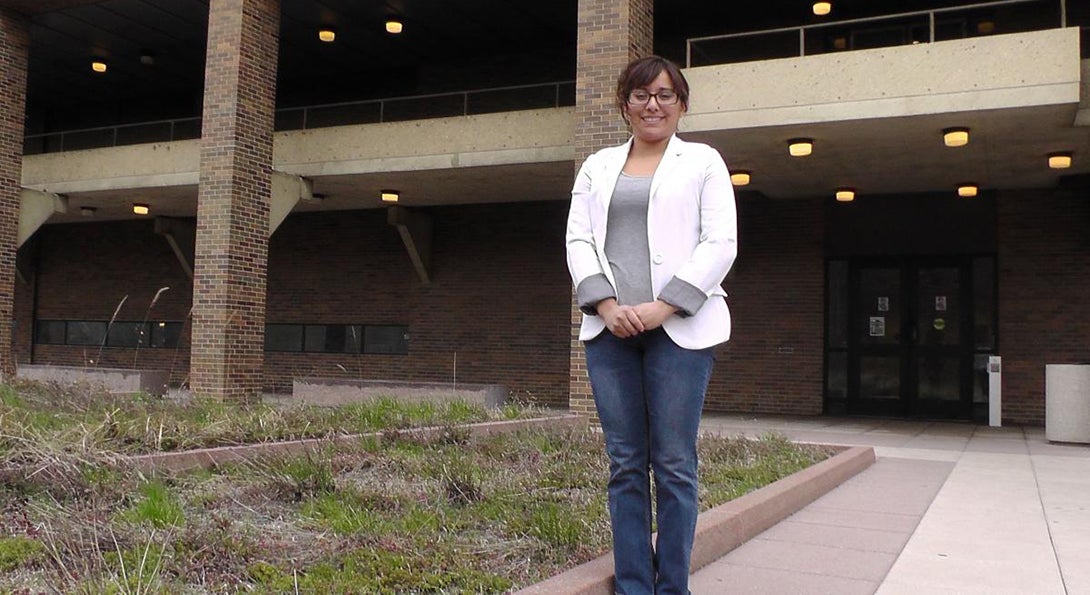Dean’s Merit Award Winner: Zayoni Torres

For the past year, Zayoni Torres has focused on building teacher capacity to deliver culturally relevant instruction in CPS schools populated by English language learners.
Over the next two years, she will be engaged in much of the same—except halfway across the world in South Africa.
Her decision to join the Peace Corps for a 27-month commitment in Africa’s southernmost nation is a fitting cap on a career at the College of Education that has earned her recognition as the Dean’s Merit Award winner for the doctoral Class of 2015. With her PhD Curriculum and Instruction degree nearing completion, Torres is ready to take her experiences as a researcher and teacher leader to new heights in a new country.
“I’ve learned a lot about myself as a person, thinking about the key role these university-school partnerships play in making educational places transformative and providing equitable learning opportunities for English language learners,” Torres said. “We build these communities not just with teachers but with fellow researchers, faculty members and principals.”
Since August 2014, Torres has served as a project coordinator for Project ELMSA (English Learning through Math, Science & Action Research), a grant-funded program at the College focused on developing culturally relevant lessons in math and science for English language learners. As project coordinator, Torres worked with 26 schools both in CPS and in the collar counties, collaborating with ELMSA teachers as they develop action research projects in their own classrooms and mentoring ELMSA research assistants, whom are graduate students at the College.
Torres initially started working with ELMSA as a research assistant at CPS Walsh Elementary in Chicago’s Pilsen neighborhood, working with teachers at the school to build math, science and literacy lessons that drew from students’ funds of knowledge from home and community. For example, one lesson focused on the different ways violence manifests itself in a community, and another focused on debunking misconceptions of the students’ home neighborhood.
“The idea is that students can develop English language proficiency through these content areas,” Torres said. “It’s not just about learning language as quickly as possible; they can learn this higher level academic content knowledge while they are developing English language proficiency.”
As she prepares to depart for South Africa, Torres reflects on the lessons she has learned as a future scholar and teacher educator. She says building positive working relationships with College faculty and staff have been key to building her future career paths.
“When I arrived here, I thought grad school would be this isolating experience, and it wasn’t until I was here that I realized how much emphasis this college places on community,” Torres said. “They see you as an equal, they want you to succeed, and they help you through that process. It’s been a lot more meaningful.”